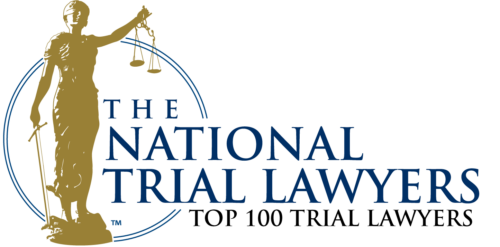The heart is one of the body’s most important organs. It pumps oxygen and nutrient-rich blood throughout the body while getting rid of carbon dioxide and waste products from cells. If something prevents the heart from pumping blood through the body properly, the body and its systems cannot survive. Tragically, every year, around 1.2 million people in the United States suffer a heart attack and more than 400,000 people die from the heart attack or medical complications. While heart attacks are often caused by diseases and health conditions, stress and overexertion on the job may also lead to heart attacks and premature death. When medical conditions are missed, the risk of a heart attack increases. Likewise, when medical conditions are misdiagnosed resulting in an inappropriate prescription drug being dispensed, the risk for a heart attack and other medical events also increases.
What Causes a Heart Attack?
A heart attack usually occurs after plaque, a fatty substance, builds up on the walls of the coronary artery, restricting the flow of blood through the heart. Over time, the artery’s walls continue to constrict, allowing less blood to flow, forming a blood clot around the plaque, blocking the artery completely, and resulting in a heart attack. When the heart’s blood supply is cut off, sections of the heart muscle begin to die from a lack of oxygen and form scar tissue. If the flow of blood is not returned to the heart within a few minutes, significant and permanent damage will be done to the heart, and the heart may not be able to pump adequately to supply the body with a regular blood flow.
While many heart attacks are caused by cardiovascular disease, heart attacks can also be caused by the cardiotoxic effect of certain drugs. Certain classes and doses of drugs can cause a heart attack in even a healthy individual. However, individuals with a preexisting left ventricular impairment may be more susceptible to this medical event. Drugs known to cause heart problems or heart attacks include:
- Cytostatics
- immunomodulating drugs
- antidepressants
- calcium channel blocking agents
- nonsteroidal anti-inflammatory drugs
- antiarrhythmics
- beta-adrenoceptor blocking agents
- anesthetics
- Certain stimulants
- Certain depressants
Drug-induced heart attacks are typically viewed as wholly avoidable and preventable injuries. Nevertheless, they can inflict life-altering injuries or even death.
What are the Symptoms Experienced in a Drug-Induced Heart Attack?
People who are having a heart attack may experience chest pain or tightness that radiates through the left arm, pain in the neck, jaw or back, shortness of breath, nausea, vomiting, and palpitations. Women tend to experience less pain and fewer symptoms than men, and may only feel what they characterize as heartburn or indigestion. Sometimes, heart attacks are “silent” and produce no pain or symptoms at all. Short term effects of heart attacks include heart failure –where too much time has passed and most of the heart muscle has died –irregular heartbeat or fibrillation, and death. Medical professionals advise individuals suffering heart attacks to seek immediate medical intervention, as doctors may be able clear the blocked artery and lessen damage to the heart muscle.
Can a Heart Attack be Prevented or Treated?
When risk factors including a family history of heart attacks or heart disease are identified, medical treatment can reduce the likelihood of a heart attack occurring and increase the individual’s quality of life. Treatment for heart attacks includes anticoagulant drugs or blood thinners, drugs that break up blood clots (thrombolytics), pain relievers, or surgical procedures like an artery bypass or angioplasty. Angioplasties open blocked arteries by inserting a catheter with a balloon on the tip into the artery. Once the balloon is in place, it is inflated, opening up the artery. Sometimes, a mesh stent is put into place to hold the artery open permanently. However, the availability of these techniques and mitigating medical procedures means little if the doctor, nurse, or medical professional misses the diagnosis and harms the patient’s chances of survival.
How Do Doctors Screen for Risk of a Heart Attack?
There are several different tests doctors may use to diagnose a heart attack including an electrocardiogram (ECG or EKG), which determines the amount of damage done to your heart, an echocardiogram to see how the heart is pumping, blood tests, MRI, or nuclear scan. Because symptoms vary so much from patient to patient, and some patients do not experience typical heart attack symptoms, doctors also take into consideration other risk factors to diagnose a heart attack. These risk factors include older age, obesity, low activity level, high blood pressure, cardiovascular disease, diabetes, high cholesterol, smoking, stress, alcohol abuse, and drug abuse.
Is the Failure To Diagnose a Heart Attack Medical Malpractice?
If a doctor fails to correctly diagnose a heart attack, the individual may suffer devastating damage to the heart or even death. Treatment for a heart attack should begin within 30 minutes to prevent or lessen extensive heart damage. Each passing minute that an artery is blocked leads to the death of more and more heart cells, so it is crucial that doctors work as quickly as they can to diagnose a heart attack. A delay in diagnosis, failure to tend to a patient in an emergency room, failure to administer proper heart attack tests, failure to look at a patient’s medical history, or failure to diagnose may cause preventable heart damage. Doctors may release heart attack patients from hospitals believing the patient is merely suffering heartburn, acid reflux, or a panic attack, causing damage to the heart that could have been prevented or lessened with a swift and correct diagnosis. Left untreated, a heart attack can lead to congestive heart failure, enlarged heart, blood clot in the lungs (pulmonary embolism), stroke, damage to the heart valves, rupture of the heart muscle, and death.
Negligence On The Part Of A Business Or Hotel Regarding Defibrillator Devices
Many businesses such as hotels, restaurants, corporate offices, shopping centers, airports, schools, and sports centers are encouraged to have automated external defibrillators (AEDs) in case an individual suffers a heart attack or cardiac arrest. AED delivers a shock of electricity to “reboot” the heart if it has stopped beating as the result of a heart attack, or is beating irregularly. Using an AED or defibrillator early during a heart attack increases a person’s chance of surviving by up to 50%. The American Heart Association has stated that over 20,000 lives could be saved every year from quick AED use.
However, if a business does not have an AED or an AED is broken or it malfunctions, the potential life-saving benefits are lost, and the individual’s chances of death and severe heart damage increase substantially. While not every business is likely to have a duty to have these type of devices, certain businesses and places of public accommodation are. For instance schools in Pennsylvania, gyms and health clubs, and other facilities are required to have these devices. The failure to have them when guests expect worker devices to be available can exacerbate the injuries sustained in a heart attack or contribute to the individual’s death.
If You Suffered a Heart Attack Because of a Misdiagnosis, Our Attorneys Can Help
If you or someone you love has suffered a heart attack due to work-related stress or exertion, dangerous medications, or the damage done to your heart was worsened due to a failure to diagnose or delay in diagnosis, the experienced medical malpractice lawyers of The Reiff Law Firm may be able to help you. Our team of expert medical malpractice attorneys, doctors, and nurses understand the intricacies of heart attacks and liability where doctors fail or delay crucial diagnoses. We have been awarded hundreds of millions of dollars in compensation on behalf of catastrophically injured or wrongfully killed victims and families to help with medical bills, rehabilitation, pain and suffering, and lost wages. If you believe a medical mistake, defective and dangerous medication, or work-related stress caused or worsened your heart attack, contact one of our heart attack lawyers for a free, no-obligation consultation.















